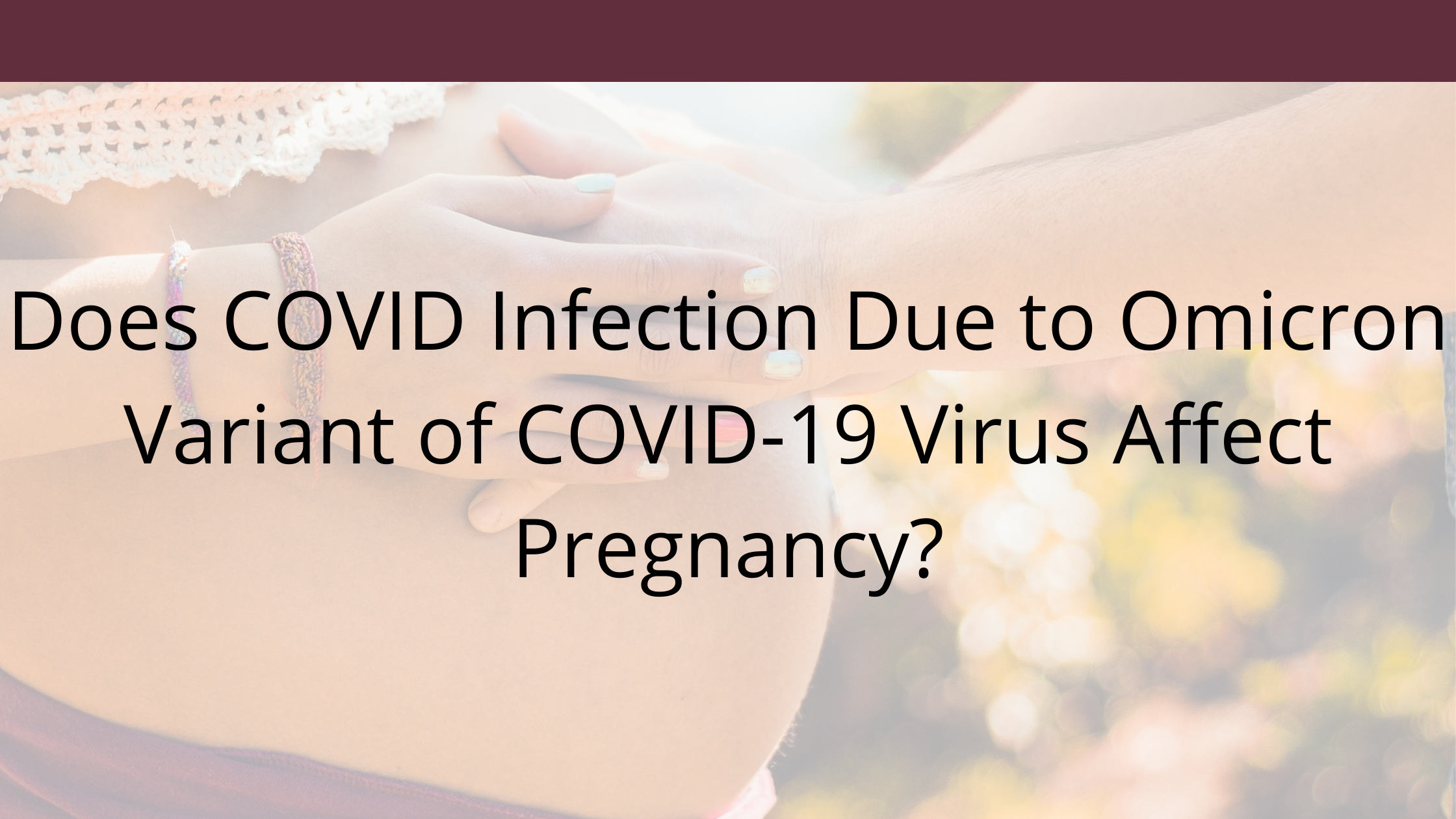
The new variant of COVID-19 virus detected first in South Africa and designated as a ‘variant of concern’ Omicron’ by the World Health Organization in November 2021 has caused even greater concern among pregnant and lactating mothers. The virus has a large number of mutations (32) in the spike proteins of SARS-CoV-2 of lineage B. 1.1. 529. It is highly infectious and rapidly spreads among the contacts. It spreads like a wild fire with number of cases almost doubling every 2-3 days. United Kingdom, the omicron variant accounts for over 25% of new cases. Its incidence has risen to this figure from 0 within a period of 3 weeks. It is predicted to the most dominant variant within the next few days. It is similarly spreading in America and Canada, and some other Western countries. The number is also increasing in India even though it continues to rise every day.
Unlike the previous Delta variant which caused wide-spread world-wide damage including in India, the omicron variant infection is much less damaging. The clinical manifestations of Omicron infection have been mild in severity. Hospitalizations and deaths are extremely rare. Generally it resolves with standard treatment for the COVID-19 infection. Data on pregnant women is not yet widely available. It is however likely that the variant infects the pregnant women more rapidly. But the disease severity remains mild as has been seen in other patients.
There are no reported effects on pregnancy. One cannot be however complacent on this account. Continued monitoring and surveillance is required to contain the damage. It will also take time to know if the Omicron infection is resistant to the currently available anti-Covid vaccines and if the re-infection and breakthrough infections with Omicron following anti-COVID vaccination can cause more severe illness or death. The data available so far clearly suggests that the severity and mortality are rare in the vaccinated people. The booster dose of vaccination has been also credited in reducing the damage due to the omicron variant.
Diagnosis of COVID infection is made with standard tests, most importantly with the molecular PCR (RT-PCR) test to obtain the virus’s genetic material from samples obtained by swabbing nose or throat. The patient need not worry about the variant and follow the prescribed treatment of the doctor. The variant can be identified in only the specialized genetic laboratories with the help of genome-sequencing. Identification of the variant is more of a public health issue than a matter of concern for an individual patient.
Management of COVID infection during pregnancy and lactation is done irrespective of the variant responsible for the infection. Subtle differences in the protocol are left to be implemented by the health personnel and medical teams. As of today, there is no major reason to get panicky. It is needless to say that we all must continue to follow the general health precautions and preventive measures. Anti-COVID vaccination is the most easily available measure which is highly effective and simple. Vaccination is however important and remains the most important step to prevent the infection as well as its severity and mortality. Vaccination during pregnancy and lactation is also recommended. Other public health measures include the continued use of face covers in the crowded areas, hand-cleaning and social distancing.



